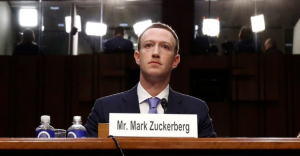For years, Facebook gave some of the world’s largest technology companies more intrusive access to users’ personal data than it has disclosed, effectively exempting those business partners from its usual privacy rules, according to internal records and interviews.
The special arrangements are detailed in hundreds of pages of Facebook documents obtained by The New York Times. The records, generated in 2017 by the company’s internal system for tracking partnerships, provide the most complete picture yet of the social network’s data-sharing practices. They also underscore how personal data has become the most prized commodity of the digital age, traded on a vast scale by some of the most powerful companies in Silicon Valley and beyond.
The exchange was intended to benefit everyone. Pushing for explosive growth, Facebook got more users, lifting its advertising revenue. Partner companies acquired features to make their products more attractive. Facebook users connected with friends across different devices and websites. But Facebook also assumed extraordinary power over the personal information of its 2.2 billion users — control it has wielded with little transparency or outside oversight.
Facebook allowed Microsoft’s Bing search engine to see the names of virtually all Facebook users’ friends without consent, the records show, and gave Netflix and Spotify the ability to read Facebook users’ private messages.
The social network permitted Amazon to obtain users’ names and contact information through their friends, and it let Yahoo view streams of friends’ posts as recently as this summer, despite public statements that it had stopped that type of sharing years earlier.
Facebook has been reeling from a series of privacy scandals, set off by revelations in March that a political consulting firm, Cambridge Analytica, improperly used Facebook data to build tools that aided President Trump’s 2016 campaign. Acknowledging that it had breached users’ trust, Facebook insisted that it had instituted stricter privacy protections long ago. Mark Zuckerberg, the chief executive, assured lawmakers in April that people “have complete control” over everything they share on Facebook.
But the documents, as well as interviews with about 50 former employees of Facebook and its corporate partners, reveal that Facebook allowed certain companies access to data despite those protections. They also raise questions about whether Facebook ran afoul of a 2011 consent agreement with the Federal Trade Commission that barred the social network from sharing user data without explicit permission.
Read more HERE
Ask me anything
Explore related questions





